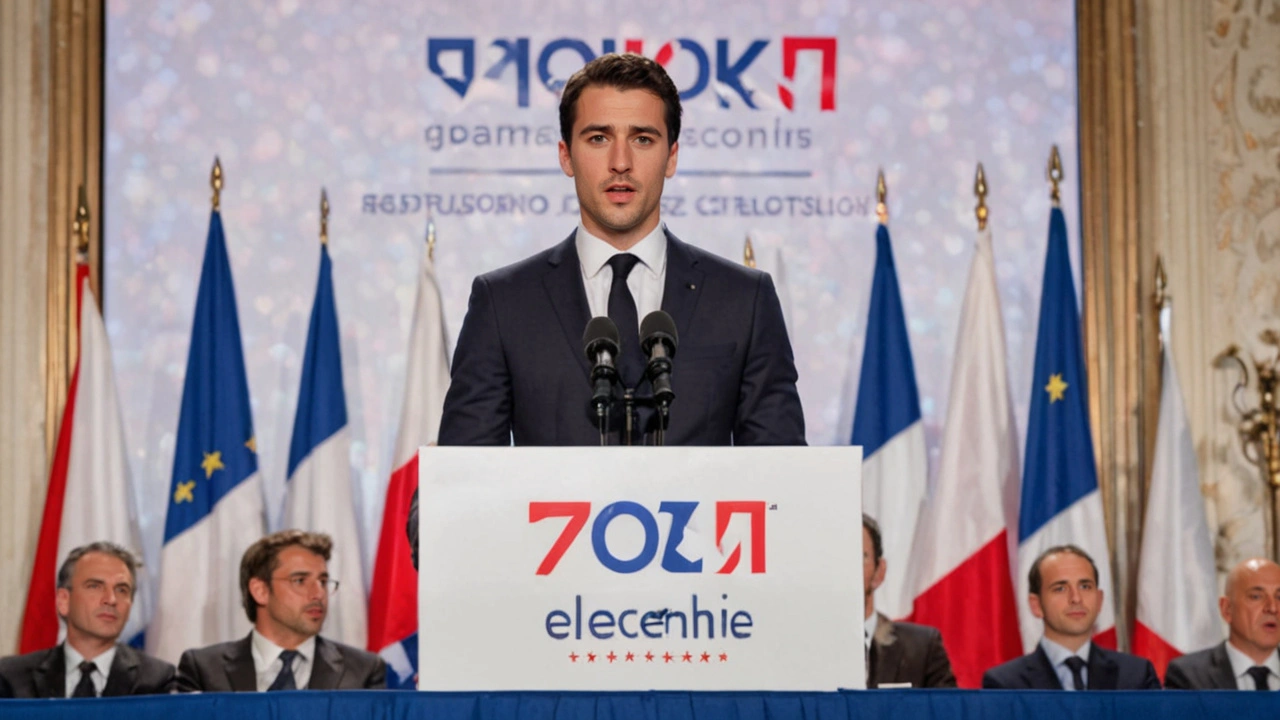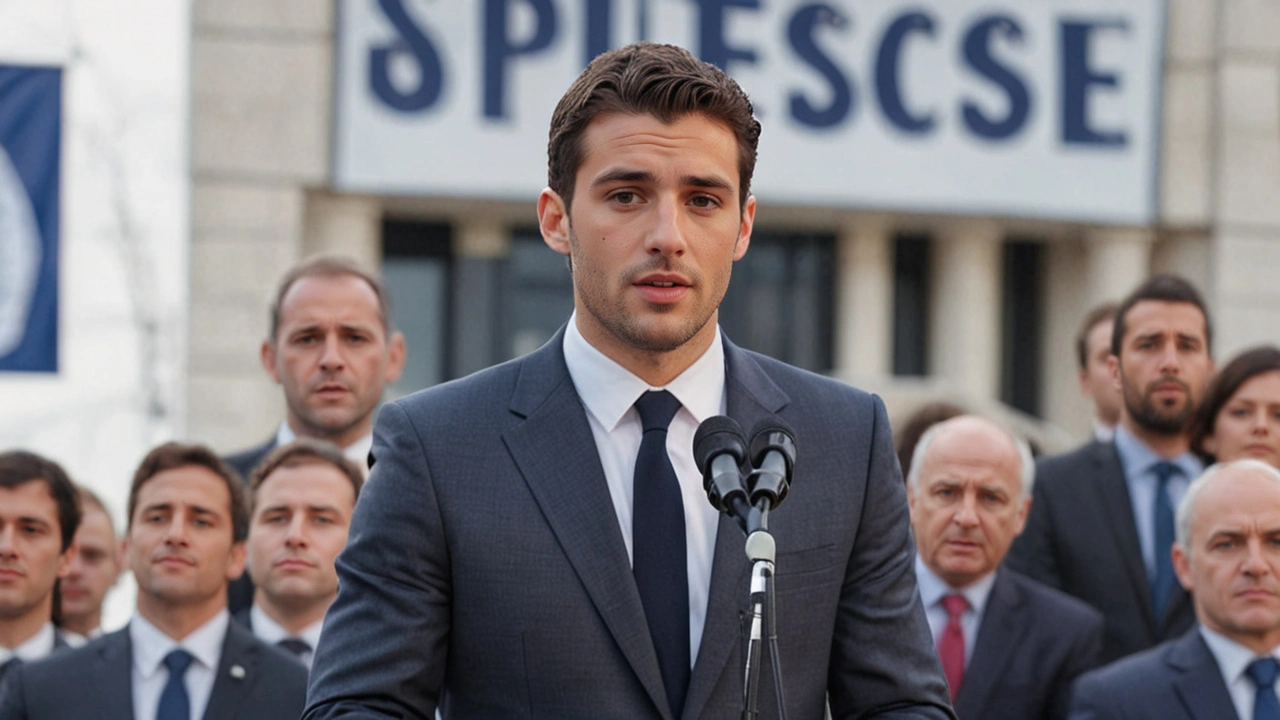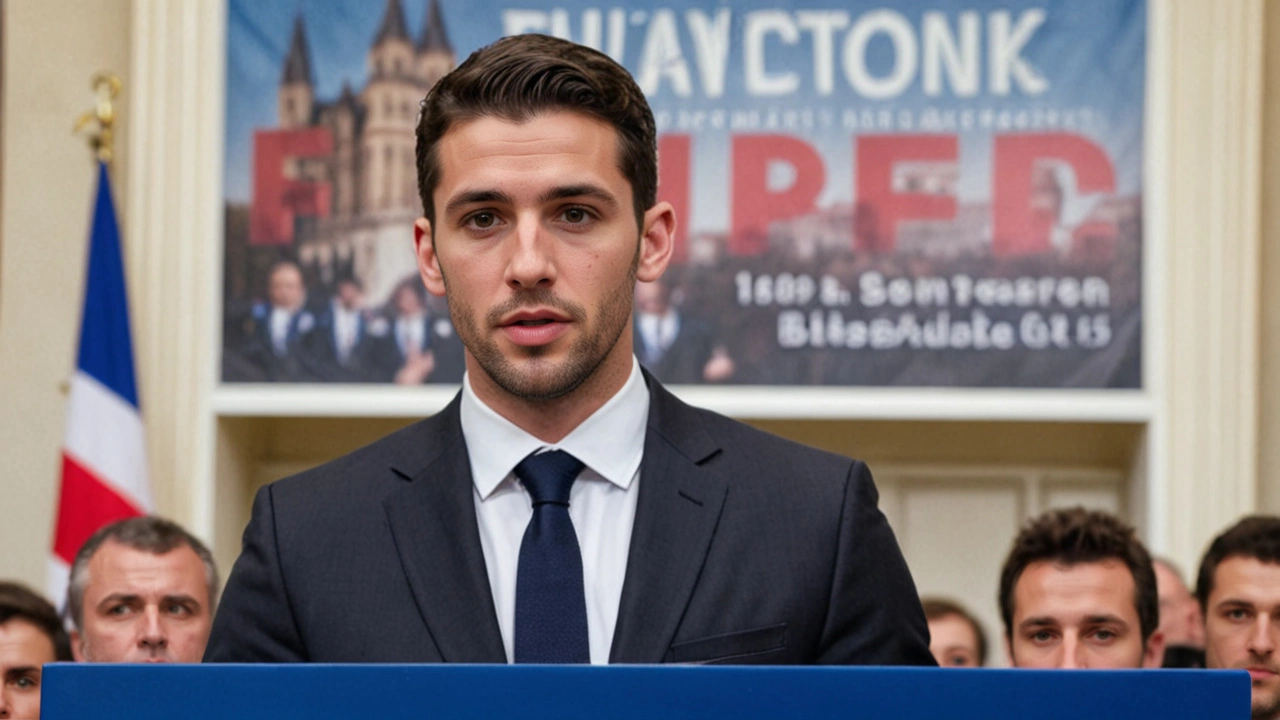Far-Right Leader Jordan Bardella Makes Historic Gains in French Elections
The recent French legislative elections have marked a significant turning point for the far-right National Rally (RN) party, led by the young and dynamic Jordan Bardella. At just 28 years old, Bardella has propelled his party to an unprecedented position of influence, garnering widespread attention and setting the stage for a potential seismic shift in the French political landscape. The RN party's performance in the first round of voting has positioned them as a formidable force, with Bardella now standing potentially on the cusp of becoming France's youngest prime minister in over two centuries.
The far-right National Rally party has won the first round of the snap legislative elections with a striking 33.1% of the vote. This represents a tremendous achievement for Bardella and his party, placing them ahead of the New Popular Front and President Emmanuel Macron's Ensemble coalition. These results have sent shockwaves through the French political establishment and captured the imagination of many voters who feel disillusioned with traditional parties. Bardella's campaign has capitalized on widespread frustrations and has resonated with a significant portion of the electorate, who view the RN as a viable alternative to the status quo.
The Road to an Absolute Majority
Despite this impressive performance, the RN party faces significant hurdles in securing an absolute majority in the National Assembly. To achieve this goal, they must navigate a complex electoral landscape and overcome concerted efforts by left-wing and centrist factions aimed at preventing the far-right from gaining control. These factions have called on their supporters to vote strategically in order to thwart the RN's progress. This strategy has led to a highly polarized and contentious political environment, with each side seeking to mobilize voters through appeals to ideology, values, and visions for France's future.
One of Bardella's key initiatives in this regard has been his proposal for a debate with Jean-Luc Mélenchon, the founder of the far-left France Unbowed party. Bardella's call for a face-to-face discussion underscores his confidence and readiness to challenge the dominant political narratives. However, Mélenchon has yet to designate a candidate for prime minister, which adds an element of uncertainty to the ongoing political drama. The RN party's strategy hinges on appealing to voters' concerns about national identity, security, and economic stability, while portraying themselves as the defenders of democracy against what they describe as the 'chaos of the far-left'.
Critique of President Macron
Throughout his campaign, Bardella has been vocal in his criticism of President Emmanuel Macron, particularly targeting Macron's perceived collaboration with far-left movements. Bardella's rhetoric has sought to paint Macron as out of touch with the concerns of ordinary French citizens, accusing him of fostering division and instability. This narrative has been a central theme in the RN's messaging, as they position themselves as the champions of the French people and guardians of national sovereignty. Bardella's sharp critiques have resonated with a segment of the electorate that feels marginalized and disconnected from the political elite.
The outcome of the second round of voting will ultimately determine whether the RN party can consolidate its gains and achieve its goal of securing an absolute majority. This crucial phase of the election process will test the party's ability to maintain momentum and mobilize its supporters. As the political landscape continues to evolve, all eyes are on Jordan Bardella and his ambitious bid to reshape French politics. The RN's rise has already altered the dynamics of the election, challenging conventional wisdom and prompting intense debates about the future direction of the country.

Implications for France's Political Future
The potential ascendance of Jordan Bardella to the role of prime minister represents a profound shift in French politics. It signals a moment of reckoning for the traditional parties and raises important questions about the resilience of the French democratic system. If successful, Bardella's National Rally could usher in a new era marked by a focus on issues such as immigration control, national sovereignty, and economic protectionism. Supporters of the RN argue that such policies are necessary to safeguard France's future and restore a sense of national pride. Critics, however, warn of the dangers posed by far-right ideologies and the potential erosion of democratic norms.
The success of the RN in the legislative elections also reflects broader trends within European politics, where far-right parties have been gaining ground in several countries. This phenomenon is often attributed to a variety of factors, including economic discontent, concerns about immigration, and a perceived failure of traditional political establishments to address the needs and aspirations of ordinary citizens. France's experience is part of a larger pattern that is reshaping the political landscape across the continent, prompting intense debates about the future of European integration and the values that underpin it.
The Path Forward
As Jordan Bardella and the National Rally prepare for the decisive second round of voting, their strategy will likely focus on consolidating their support base and reaching out to undecided voters. Messaging that emphasizes national unity, security, and economic resilience is expected to be central to their campaign efforts. The RN's ability to maintain its momentum and navigate the complexities of the political environment will be crucial in determining the outcome of the elections and the future direction of French politics.
For the voters, the upcoming election represents a critical moment to reflect on the choices before them and the values they wish to see represented in their political leaders. The stakes are high, and the decisions made in the coming weeks will have lasting implications for the country's trajectory. Whether the RN succeeds in its bid for power or not, the impact of Jordan Bardella's rise and the party's performance in the elections will be felt for years to come, reshaping the contours of French political discourse and influencing the broader European political landscape.

Conclusion
In summary, Jordan Bardella's National Rally has made a historic breakthrough in the recent French legislative elections, capturing the imagination of many voters and challenging the traditional political order. The party's success in the first round of voting has set the stage for a high-stakes battle in the second round, with far-reaching implications for the future of French politics. As the RN strives to secure an absolute majority, the coming weeks will be pivotal in determining the outcome of this dramatic and closely watched election. Bardella's rise reflects broader trends within European politics and raises important questions about the direction of democracy, sovereignty, and national identity in France and beyond.

Write a comment